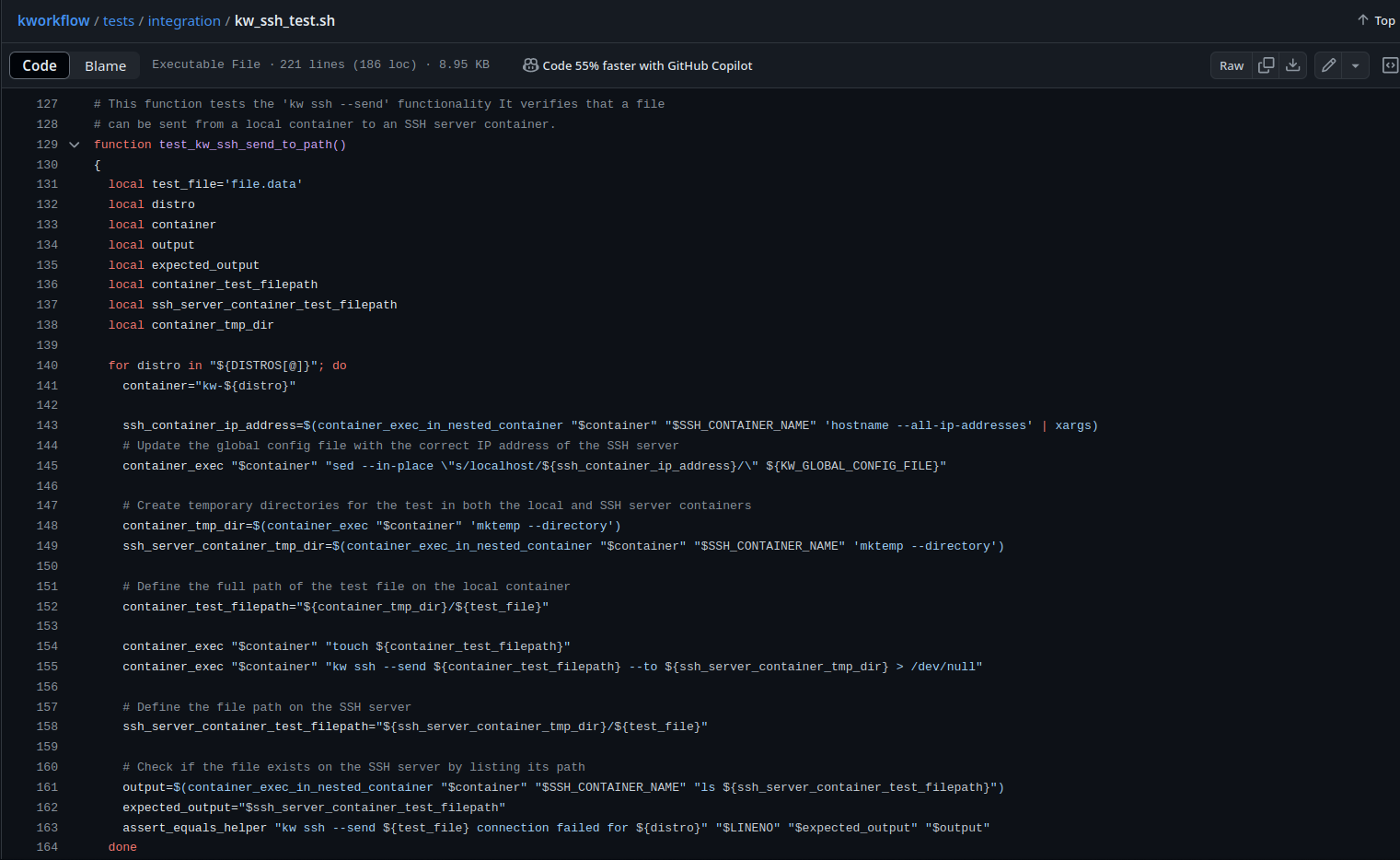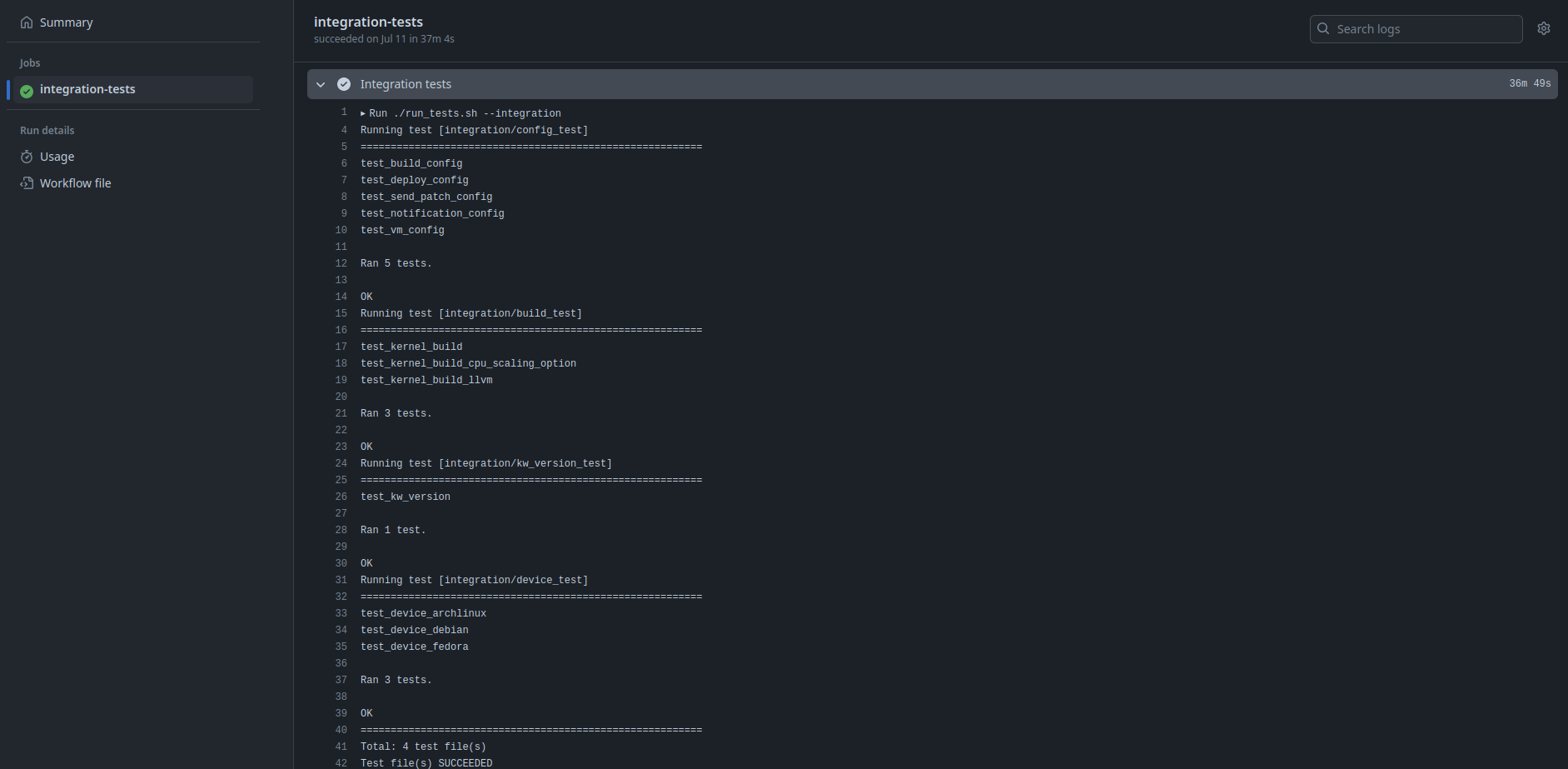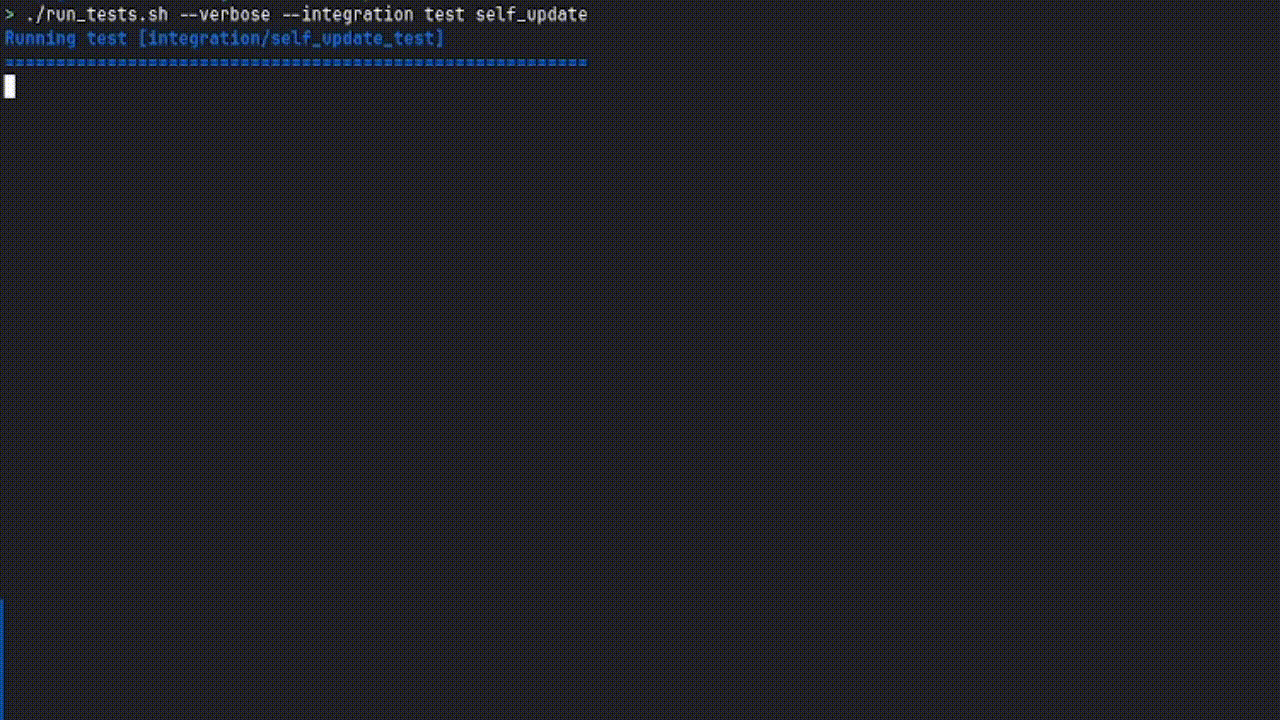Well, after spending the last few months studying and contributing to kworkflow as part of Google Summer of Code 2024 under the Linux Foundation, it’s time to catalog all the contributions made during this period. I can confidently say that this experience has been extremely enriching and has significantly advanced my development skills.
Proposal
My GSoC24 proposal focused on enhancing and expanding the integration tests for kworkflow, which previously had only unit tests and a starting infrastructure for the integration tests. Throughout the program, I worked on introducing, enhancing, and solidifying these integration tests to ensure more effective validation of the project’s features. Additionally, I aimed to make the test suite easily expandable by implementing clear standards and robust infrastructure. This approach allows future contributors to add new tests with minimal effort, ensuring that the suite can grow alongside the project.
Overall Progress
Throughout my participation in the GSoC24, I achieved significant milestones that reflect both the breadth and depth of my contributions.
Key Achievements
-
Enhanced Integration Test Coverage: I focused on making the test infrastructure stronger and more scalable. I improved the existing integration tests and added new ones for important features like
kw ssh,kw build, andkw deploy. This significantly increased the range of tested scenarios.
-
Adaptation of CI for Integration Tests: As part of enhancing the testing process, I adapted the GitHub Actions CI workflow to include the execution of integration tests.

-
Refinement of the kworkflow test script: During the refinement of the integration tests, the
run_tests.shscript used to execute the kw tests was updated to include a--verboseoption. This option aids in debugging by displaying detailed information about the Podman containers, such as real-time status and specific data to identify which container from which distribution is being started.
By default, running
./run_tests.shwithout any options will execute only unit tests, which helps reduce execution time. For users who want to run all tests, including time-consuming integration tests, an--alloption was implemented. Additionally, the--integrationoption allows users to specifically run only the integration tests. For example, thekw buildintegration test involves kernel compilation, which can be lengthy. If a contributor makes a minor change that doesn’t affectkw buildfunctionality, running the full integration tests is unnecessary. These options ensure more efficient test runs by allowing contributors to focus on the relevant tests only.
Challenges and Solutions
During my journey in the Google Summer of Code, I faced several challenges while implementing and improving integration tests for kworkflow. Initially, adapting the tests to run in Podman containers was a considerable challenge. I resolved this by thoroughly studying the Podman documentation and adjusting the test scripts to ensure compatibility and performance within the testing framework.
Another major challenge was integrating tests for the kw build feature due to
the extended time required for kernel compilation. To mitigate this issue, the
tests were adapted to run on only one random distribution, saving both time and
resources. I utilized Podman containers and the
shUnit2 framework to organize the tests,
along with specific scripts to monitor and validate CPU usage with the
--cpu-scaling option. This allowed kw build to be tested without the need
to compile the entire kernel
The integration tests for the kw ssh feature were more complex due to the use
of nested containers. Adapting the tests for this scenario was challenging, but
it also provided a valuable learning opportunity. Additionally, I had to manage
the execution of commands with special characters inside the containers. To
address this, I developed functions to ensure that these commands were
correctly interpreted by the shell.
Throughout my GSoC24 experience, I encountered numerous challenges, but I was able to overcome them thanks to the consistent support from my mentors, who were always available to address my questions. Beyond the dedicated meetings for my project, the weekly discussions with the kworkflow community proved extremely helpful. These sessions offered broader insights and helped ensure that my work was in line with the community’s goals and expectations.
Blogpost Series Timeline
This post is a high-level view of my GSoC24 project. A more detailed and technical overview of the work done can be seen in previous posts. I have prepared a series of blog posts that explore different aspects of the kworkflow project. Here is a timeline of the posts, with direct links to each one:
Contributions
Throughout the project, I created several pull requests (PRs) addressing different aspects of kworkflow. Each PR was carefully crafted to enhance functionality, increase test coverage, and/or ensure code robustness. Below are some of the most significant PRs:
However, these PRs represent only the visible contributions. A significant amount of work was done behind the scenes, including researching the best approaches, communicating with mentors, gathering feedback, and iterating on solutions. This “offline” work was crucial in shaping the direction and quality of the contributions.
Features in Development: Almost Ready to be Merged
The PRs listed above include features that are actively in development, such as
tests for the kw ssh, kw build, and kw deploy functionalities. Although
many of these PRs are already well-structured, they are still undergoing final
reviews and refinements. A significant portion of the important decisions has
already been discussed within the kworkflow community, and have the green light
of the mentors, so I can safely say that the direction of my project is set and
aligned with kworkflow goals and needs.
Next Steps
As a long-time contributor to kworkflow, I am committed to continuing my contributions to the project. Here are the key areas I plan to focus on:
-
Expanding even more the Integration Test Coverage: Continuing to expand the test coverage is a priority. I will work on creating and refining tests for additional functionalities that have not yet been fully covered, ensuring a comprehensive and effective validation process. Although this initial phase involved tackling complex and diverse features such as
kw build,kw deploy,kw device, andkw ssh, which required significant effort due to their intricate infrastructure, this groundwork has paved the way for easier and more straightforward expansion of the test suite. The standards and infrastructure established during this process will streamline the addition and revision of tests, making future coverage enhancements more efficient and scalable. -
Migrating to New CI Pipeline: An important next step is migrating the integration tests to a new CI pipeline which is being developed with” Jenkins by Marcelo Spessoto, a fellow Google Summer of Code 2024 participant working on the kworkflow project. This migration will demand some small tinkering on my end to accommodate the integration tests pipeline in this new infrastructure. Nevertheless, thanks to close communication with my fellow kworkflow contributor, we are confident that this will happen as seamlessly as possible
-
Implementing Acceptance Tests: I plan to develop acceptance tests that will validate multiple functionalities in sequence. These tests will ensure that the integration of various features works seamlessly and meets the overall requirements of the project.
-
Improving Documentation: I will focus on improving the documentation specifically related to the integration testing processes within the project. This includes updating existing documentation to reflect new practices, enhancing clarity, and ensuring that all relevant information is accessible and useful to contributors and users alike. By providing clear and detailed documentation, the integration testing process will become more transparent and easier for future contributors to understand and build upon.
Acknowledgments
I would like to express my deep gratitude to my mentors, David de Barros Tadokoro, Rodrigo Siqueira, Paulo Meirelles, and Magali Lemes. Your attention, ideas, and feedback were crucial to the success of this project and made the journey much more enriching. I sincerely appreciate your constant support and valuable contributions :-).
Additionally, I would like to thank the Linux Foundation for the opportunity to participate in Google Summer of Code 2024. It was an incredible and transformative experience.